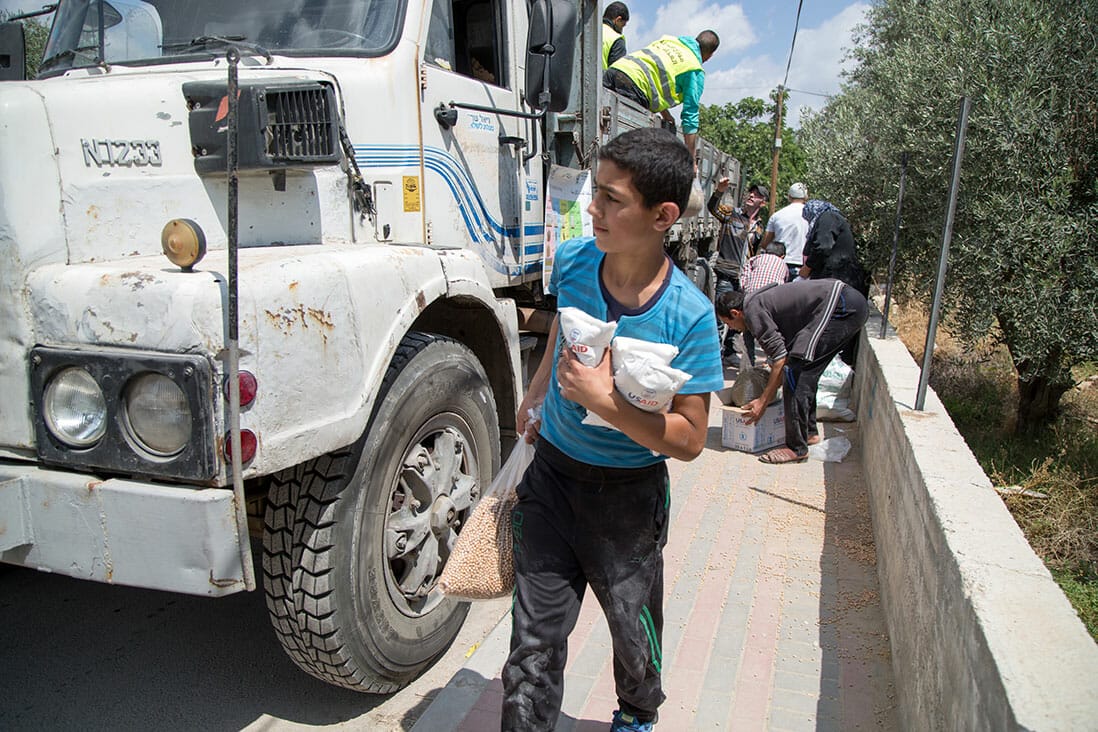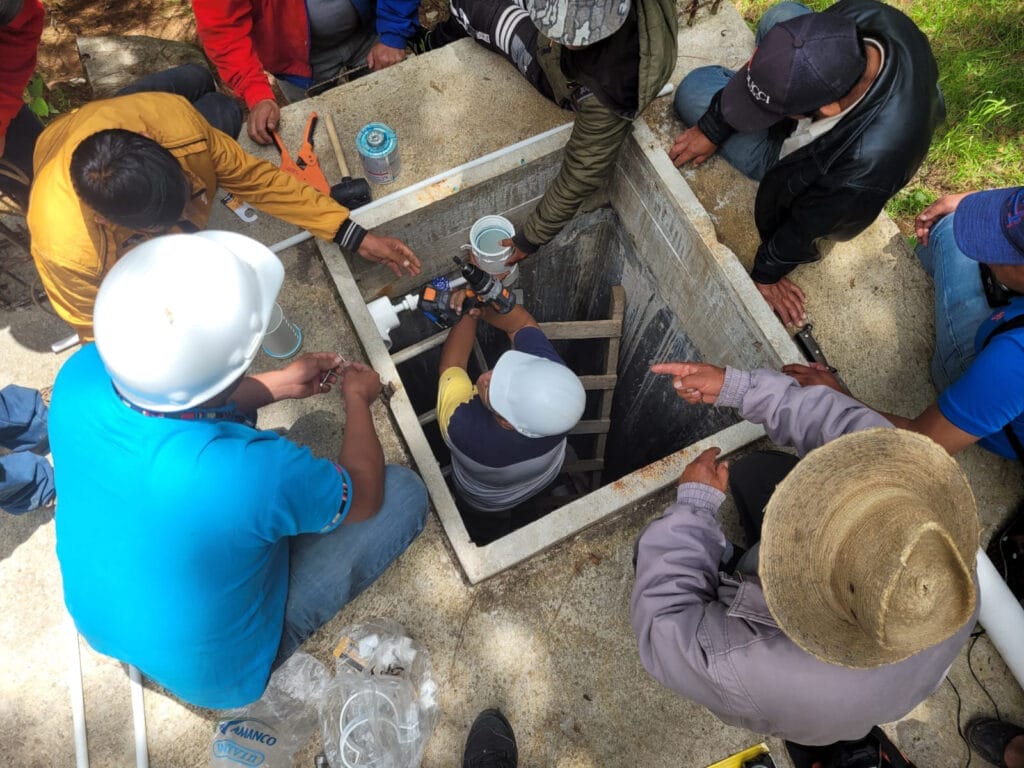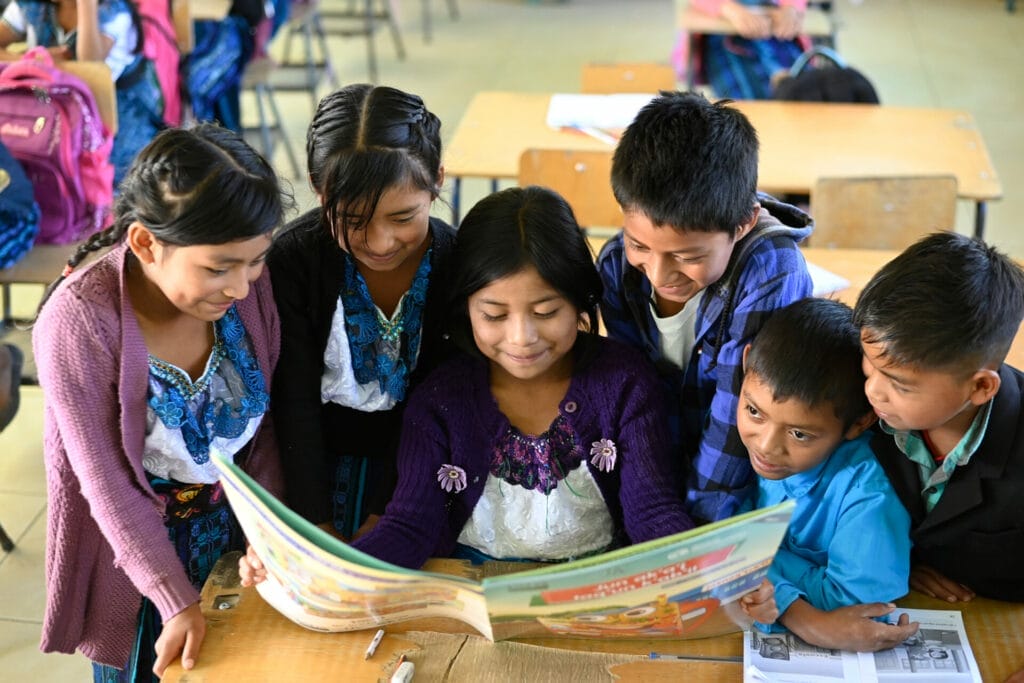Global Communities delivers humanitarian assistance in countries recovering from natural disasters or man-made conflict. Our programs are designed to meet immediate, lifesaving food needs during periods of conflict or disaster, while simultaneously reducing food aid dependency and promoting self-reliance. Ensuring uninterrupted access to nutritious food is a primary concern for families in humanitarian crises, and is intrinsically linked to the availability of food production and agricultural livelihoods.
Global Communities provides support to vulnerable families whose access to nutritious food has been affected by natural disasters or civil unrest in countries around the world. Ensuring uninterrupted access to nutritious food is a primary concern for families in these humanitarian crises. Our programs provide emergency food assistance to address immediate lifesaving needs, with a focus on providing sustainable support that aims to reduce dependency on assistance, while improving household nutrition and food availability.
Our Approach
We deliver food assistance in various forms, including ready-to-eat ration kits, food baskets and bread distribution. We assess the context to determine if it is most appropriate to provide food assistance in the form of in-kind items, cash or vouchers, or a combination of these transfer modalities. Our nutrition programming includes voucher assistance, which enables program participants to purchase the food that best meets their families' needs for a diverse and nutritious diet while also supporting local markets. This is coupled with nutritional education and messaging, which includes providing information on proper nutrition and dietary diversity, promoting locally available, affordable and acceptable nutritious foods, food safety and proper hygiene, as well as information on breastfeeding and infant and young child feeding, among other topics.
Our programs are balanced between food aid and livelihood promotion, with a focus on sustainable support, aiming to reduce food aid dependency, improve household nutrition and food availability, provide income and transition targeted groups from relief to sustainable livelihoods.
Our work in this area reaches:
Resources
Briefs & Case Studies
‘Survival, Resilience and Solidarity’: Our Relief Efforts in Gaza (Arabic Translation)
Now over four months in, the humanitarian crisis in Gaza has reached catastrophic levels, with one in four households facing famine levels of food insecurity and severely limited access to safe water. “Our mornings begin with a silent check – are the kids, is everyone, alright?” said Mohammad, one of 74 staff members from Global…
Research & Publications
Global Communities Safeguarding Policy
Safeguarding is an organization-wide responsibility to ensure that our people, programs, and practices respect the rights and dignity of the people with whom Global Communities comes in contact so that they can live free from abuse and harm. Safeguarding includes preventing sexual exploitation, abuse, and harassment (PSEAH), safeguarding children, anti-trafficking, sexual harassment in the workplace,…
Capacity Materials
Community-Led Emergency Action and Response: CLEAR Program
CLEAR is an 18-month, $15 million program implemented by Global Communities and funded by the United States Agency for International Development’s Bureau for Humanitarian Assistance (USAID/BHA). CLEAR is addressing the urgent protection, shelter & settlements (S&S), and water, sanitation and hygiene (WASH) needs for 22,580 people who have been affected by the war in Ukraine.…






